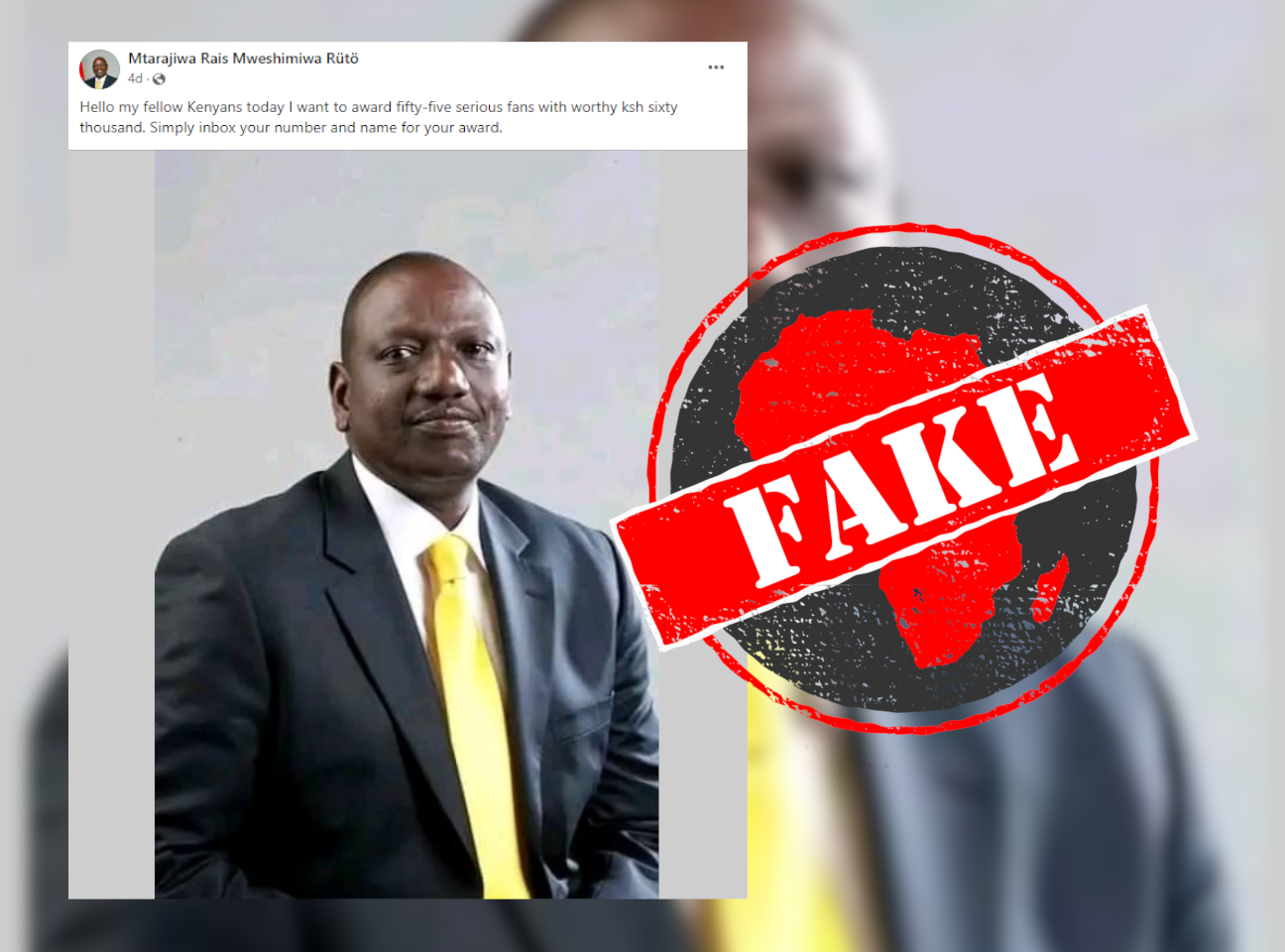IN SHORT: A Facebook page using William Ruto’s name and photos is promising cash handouts in return for personal details. But the page is impersonating the Kenyan president and the offers are fake.
The Facebook page "Mtarajiwa Rais Mweshimiwa Ruto" offers cash giveaways to Kenyan users.
The account uses the name and photos of Kenyan president William Ruto.
One of its posts, dated 19 September 2022, reads: “Hello my fellow Kenyans today I want to award fifty-five serious fans with worthy ksh sixty thousand. Simply inbox your number and name for your award.”
Another post says that the cash giveaways target people working in low-income jobs, such as bike taxi business and small-scale vegetable sellers.
The posts have been shared widely.
But is the Facebook account really run by Kenya's new president? We checked.

Signs account is fake
Facebook allows public figures such as Ruto to verify their pages on the platform. These pages carry the “blue tick” verification badge.
Ruto’s official Facebook account, William Samoei Ruto, is verified. The account offering the giveaways is not.
It is unlikely that the president would operate two Facebook accounts and dedicate one to cash giveaways.
Besides, the posts on the fake account are full of spelling and grammar errors. This would be unlikely on a Facebook account representing Kenya’s president.
The account's requests for phone numbers might be an attempt to scam people.
To help protect yourself against online scams, see Africa Check’s guide to Facebook scams and how to spot them.
Republish our content for free
For publishers: what to do if your post is rated false
A fact-checker has rated your Facebook or Instagram post as “false”, “altered”, “partly false” or “missing context”. This could have serious consequences. What do you do?
Click on our guide for the steps you should follow.
Publishers guideAfrica Check teams up with Facebook
Africa Check is a partner in Meta's third-party fact-checking programme to help stop the spread of false information on social media.
The content we rate as “false” will be downgraded on Facebook and Instagram. This means fewer people will see it.
You can also help identify false information on Facebook. This guide explains how.


Add new comment